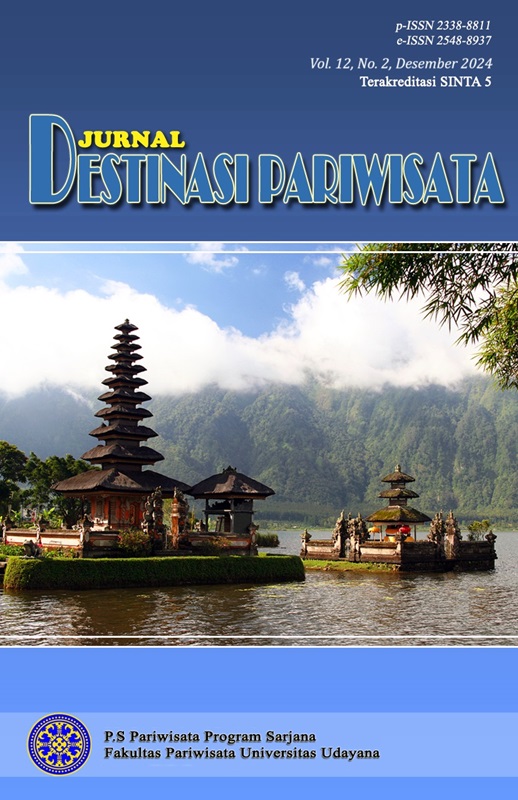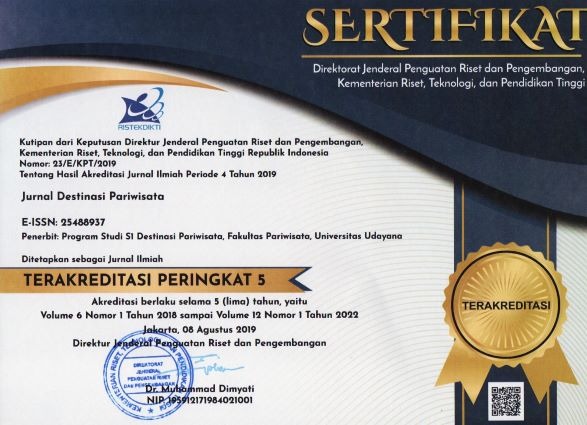Implementasi Konsep Tri Hita Karana Dalam Pengelolaan Daya Tarik Wisata Pura Uluwatu, Badung, Bali
Abstract
This research is motivated by the implementation of the Tri Hita Karana concept in the management of Uluwatu Temple tourist attraction in the village of Pecatu, Bali, which is a popular tourist destination known for its cultural, economic, and environmental significance. This study employs qualitative descriptive data obtained from observations, interviews, literature review, and documentation. The informants were selected using purposive sampling technique. The analysis technique used is qualitative descriptive, which involves describing the results of observations, interviews, and documentation analysis according to the contextual circumstances during the observations or interviews. The research findings show that the implementation of the Tri Hita Karana concept in the management of Uluwatu Temple tourist attraction is 90%. Applying the Tri Hita Karana concept provides a tourism development model based on local wisdom that yields positive implications. This model emphasizes the harmonious relationship between tourism and the spiritual, social, and physical environment. For Uluwatu Temple, the development of Tri Hita Karana-based tourism has a significant impact on improving the economic aspects, revitalizing culture, and preserving the environment. The implementation of the Tri Hita Karana concept becomes a key factor in managing the Uluwatu Temple tourist attraction by preserving local wisdom values and maintaining a balance between tourism development and environmental and cultural preservation.
Keywords: Tri Hita Karana; tourist attraction; management
Downloads









